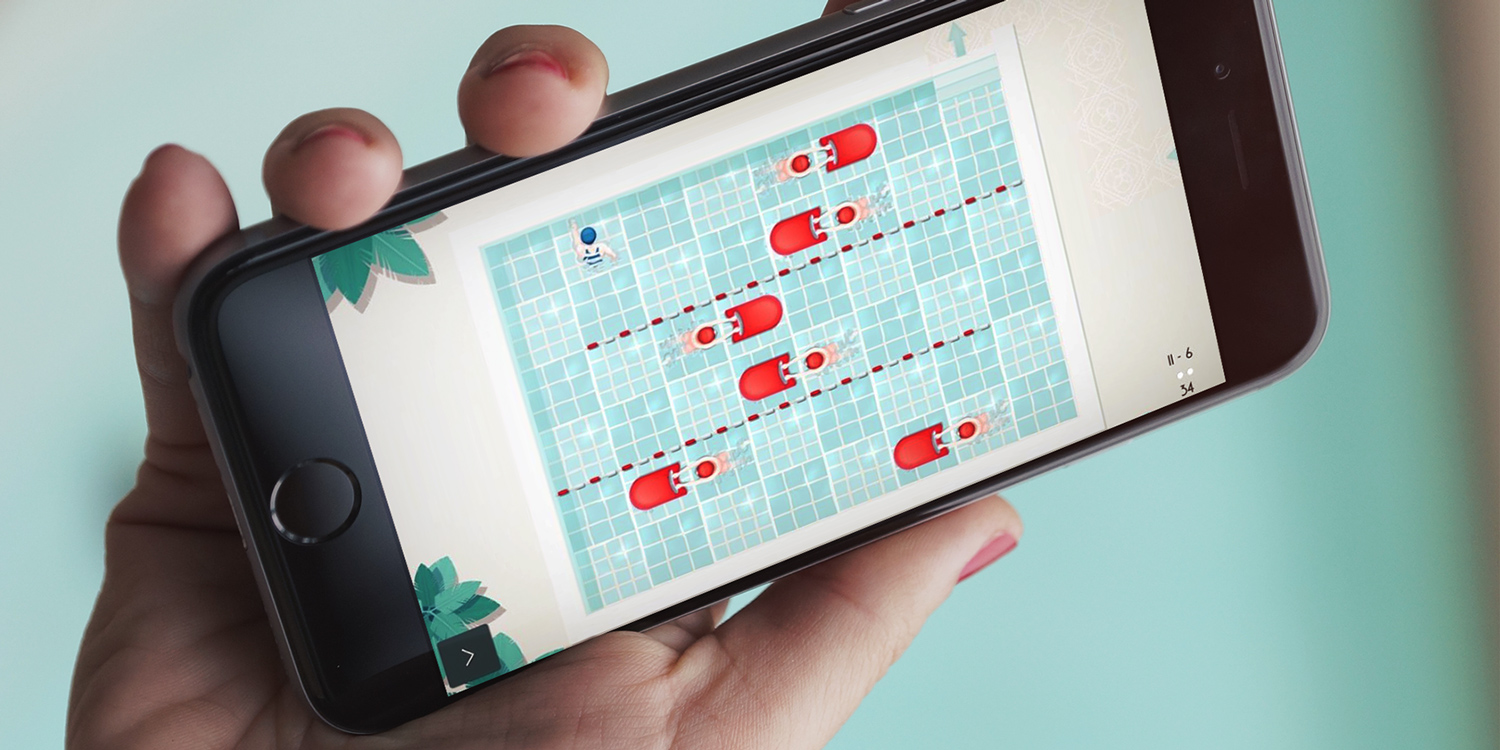Developer: Lozange Lab
Price: $3/£3
Size: 190 MB
Version: 1.4.1
Platform: iPhone & iPad
Update! Since we reviewed the game in 2017 there have been a couple of updates for technical tweaks and improvements, plus new achievements and controller support. So how does Swim Out play today?
So what’s new? The turn-based dungeon-crawling puzzler thing was hardly original back when Swim Out was brand new in 2017 it – we referenced Ending and Rust Bucket in our review. Rather, the game’s unique angle was its whole ‘retro-swimming pool’ setting, and that’s something that hasn’t been copied an awful lot since. The result is that Swim Out continues to feel both warmly familiar and a little bit different.
Revised rating: Still causing a splash. ★★★★
—–
Our original review, written in October 2017, is presented in its entirety below.
Mobile puzzle games typically feature abstract concepts and surreal self-contained universes. Perhaps that’s why Swim Out feels so fresh despite its mundane, everyday theme.
Essentially a turn-based dungeon-crawling puzzler like Ending or Rust Bucket, Lozange Lab’s masterstroke is in setting Swim Out in a recognizable public swimming pool (seemingly circa 1950) rather than a monochrome grid or a fantastical dungeon.
You must swipe to guide your blue-capped swimmer towards the pool’s exit ladder, one tile at a time. In your way are a handful of red-capped swimmers going about their automated routines. Collide with any of them and it’s an instant fail, sending you back to the start of the pool.
Those oblivious rival swimmers vary in form, from space-hogging float-carriers to divers who can advance several tiles at once when they enter the water. You’ll also encounter pool hazards like gusts of icy wind that freeze you in your tracks for a turn, or corner arrows that redirect rather than turn back the other swimmers.
You’ll also encounter limited-use equipment that must be utilized smartly to get you through the congested pool ahead. The beach ball lets you stun a swimmer for a couple of turns, while flippers will increase your stroke length.
The smart interplay of all these elements really brings Swim Out to life, as you negotiate some occasionally torturous paths through each pool. You may even need to pop out to an adjacent pool to snag a helpful item, then jump back in to resume your progress.
Swim Out’s bright, warmly familiar presentation lends an unusually convivial air to proceedings. This manages to keep frustration at bay during the game’s trickier, more convoluted puzzles – at least most of the time.
Frustration does occasionally spill over, mainly when the game’s brutal one-hit-and-you’re-out rule rubs up against its tendency to pack more than one pool into a single level. It gets quite annoying having to redo the same pool half a dozen times just to get another attempt at a particularly challenging portion.
Overall, though, Swim Out’s tight puzzles and relaxing aesthetic keep the game comfortably afloat. Like swimming in a heated outdoor pool during the winter months, it’s a warmly familiar exercise with a bracingly fresh twist.





